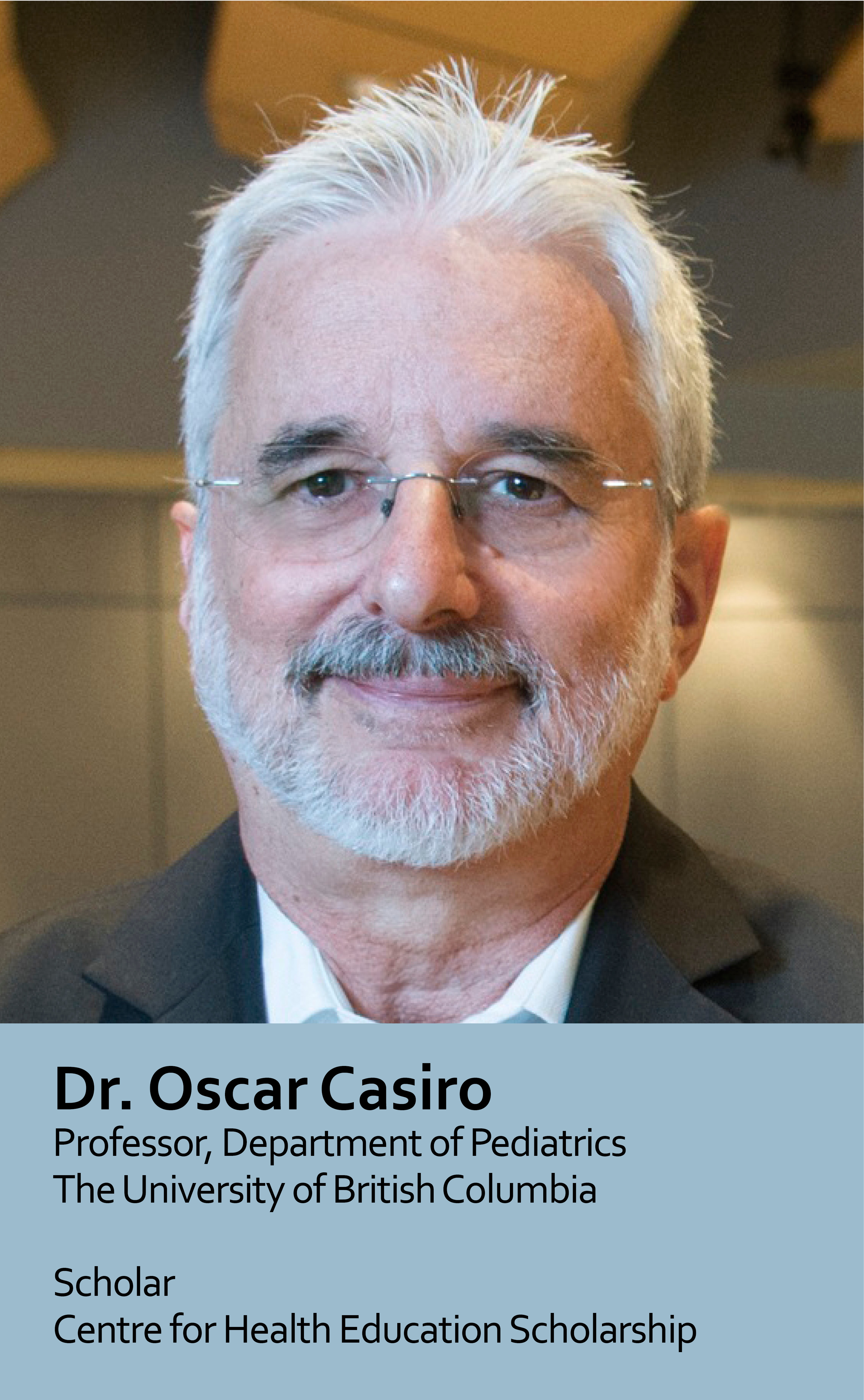Insights on Governance and its Stealthy Role in Medical Education
Dr. Oscar Casiro

Date: Wednesday, November 15, 2017
Time: 12:00pm to 1:30pm (feel free to bring a bagged lunch)
Locations:
- DHCC 2267 (host venue)
- IRC 305
- RJH CA 120
- NHSC 9-374
Remote:
- Additional locations and video conference options are available. Please email ches.secretary@ubc.ca to process the request.
Abstract
Medical educators and medical education researchers have been invested heavily in issues of educational content, pedagogy and design. However, relatively little consideration has been paid to the governance processes that ensure fidelity of implementation and ongoing refinements that will bring curricular practices increasingly in line with the pedagogical intent. The objective of this presentation is to review the definition and properties of good governance, to reflect on the importance of governance in medical schools, to explore the unique properties of medical curricula that complicate academic governance, to discuss mechanisms to evaluate the extent to which governance is operating effectively within a medical program, and think about a potential research agenda for increasing our collective understanding of effective governance in medical education.
Biography
Dr. Oscar Casiro is a professor in the Department of Pediatrics and a Scholar in the Centre for Health Education Scholarship at the University of British Columbia’s (UBC) Faculty of Medicine. After obtaining a medical degree from the University of Buenos Aires, Argentina, he completed training in Pediatrics and Neonatology at the University of Manitoba. His early research interests centered on the long-term outcomes of high risk, premature infants and the effects of substance abuse during pregnancy.
Dr. Casiro developed an interest in medical education leadership and scholarly activities early in his academic career. He has held leadership positions of progressive responsibility in the field of medical education, including Residency Program Director, Neonatal-Perinatal Medicine; Chair of the Royal College of Physicians and Surgeons of Canada Specialty Committee on Neonatal-Perinatal Medicine; Associate Dean, Undergraduate Medical Education (University of Manitoba); Chair of the Undergraduate Medical Education Committee, Association of Faculties of Medicine of Canada; President of the Medical Council of Canada; and Founding Regional Associate Dean, Vancouver Island (UBC and University of Victoria). At present, he is Chair of the Committee on Accreditation of Canadian Medical Schools (CACMS), voting member of the Liaison Committee on Medical Education (LCME) in the U.S and Regional Director for Latin America, Royal College of Physicians and Surgeons of Canada International, promoting academic partnerships in order to enhance postgraduate medical education in the region.
Accreditation:
The University of British Columbia Division of Continuing Professional Development (UBC CPD) is fully accredited by the Committee on Accreditation of Continuing Medical Education (CACME) to provide study credits for continuing medical education for physicians. This course has been reviewed and approved by the UBC Division of Continuing Professional Development. This Group Learning course meets the certification criteria of the College of Family Physicians of Canada and has been certified by UBC CPD for up to 1.5 Mainpro+ credits. This course is an Accredited Group Learning Activity eligible for up to 1.5 MOC Section 1 credits as defined by the Maintenance of Certification program of the Royal College of Physicians and Surgeons of Canada. Each physician should claim only those credits he/she actually spent in the activity.
